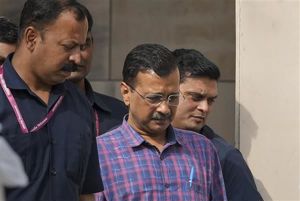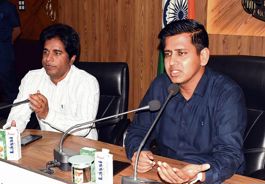
Anything that is complex can’t be scaled up, feels Anup Bagchi, MD and CEO of ICICI Prudential Life Insurance.
Anything that is complex can’t be scaled up, feels Anup Bagchi, MD and CEO of ICICI Prudential Life Insurance. In an interaction with Vijay C Roy, he says the insurance sector needs to be demystified for customers, with more awareness, easier on-boarding and a hassle-free claim settlement process. Excerpts:
What is the life insurance penetration in India?
The penetration of health and life insurance products continues to remain low. According to the Insurance Regulatory and Development Authority (IRDA), the penetration is less than 5 per cent. There are 26-27 insurance companies operating in the segment but if we talk about the big ones, there are five-six players only.

How important is insurance for society?
Insurance is not a substitutable product. No other banking and finance product compares with it. Life insurance policies can reach more people if these are positioned like home loans, where people feel the need for a house and thus choose to keep paying EMIs with discipline, and eventually end up with the asset. A similar push towards insurance could trigger continuous growth for the insurance sector. People should think of it this way: with a home loan, pay all your EMIs, and your house is free. Similarly, think of life insurance products as creating a long-term corpus. Pay your premium and your corpus is free. Insurance is not a villain, it’s an integral part of society. The major reason for personal bankruptcy is healthcare, especially when it comes to critical illness.
What is your current market share?
Our current market share is 7.5-8 per cent. Life Insurance Corporation of India (LIC) has a dominant market share. We have a total of 8 crore policyholders, comprising individuals as well as groups.
You feel there is a dire need to make the insurance products simple. Why do you think that is important?
Anything that is complex can’t be scaled up. Simplify it. We have observed many times that customers are reluctant to buy insurance because of the complexities involved. At times, the product is so complicated that the customers are not confident about what they are buying. It is an open secret that customers shy away from complex products. So, the need of the hour is to reduce the complexity and simplify the process so that customers come on their own to buy policies. There is demand for sure, but then if that is the case, why is the penetration low? It’s a question that needs introspection.
The processes should be made simpler. The product should be such that it should be easily understandable to the masses. For example, what we have tried to do is to create an explanatory video of 30 seconds. The idea is that in 30 seconds, you should be able to explain the most important things about a product so that they know what they are getting. We are sending these videos to our partners as well, so they do not miss out on any important aspect.
So, you have products that can be easily understood in less than 30 seconds?
We already have products like that and we have videos that can make you understand in less than 30 seconds. We are giving these to distributors, our agents and direct customers. Even after selling the policies, we send it to customers stating that these are the benefits you will get. The customer should know what he or she is buying. This is our product strategy, to keep it simple.
What about the complex jargons in policies?
There is so much jargon in the insurance industry that customers don’t understand what we (insurers) are trying to give them. A committee has been constituted by the regulator IRDA to work on demystifying the jargon. The objective is to replace complex terms with simpler ones, that are easy to understand for the policyholders.
What kind of products are the most sought after in the industry?
If we talk about the life insurance industry, guaranteed products are in demand and their contribution is around 30 per cent of the total sales. Semi-guaranteed products and annuity are also doing good. Since the stock market is doing well, ULIPs or unit linked insurance plans have also gained traction. Their contribution varies between 30-32 per cent of the total sales. Protection products would be around 11-12 per cent.
In the age of digitisation, how do you see the distribution models?
Broadly speaking, there are four types of distribution models that exist in the market. First is just like LIC, that is an agent-based distribution network, which is the strongest model. The agent is your neighbourhood person, you have trust and they are easily available. Above all, they give you advice. But there is no institutional support like customer relationship management, portfolio tracking, etc. We have introduced an app on the lines of Amazon. We issue the policy the same day. In case it’s not issued, you can track the policy and will come to know which document is required, what to buy and what not.
The second model is bancassurance, where the bank sells the insurance. Our agency plus employees contribute 50 per cent of the sales and 15 per cent comes from ICICI bank. Channels such as other banks contribute 15 per cent of sales, and distributors like Bajaj Capital and other digital distributors the rest.
We see a lot of potential in payment apps and e-commerce players. They have a lot of data pertaining to consumers. But they don’t know what to do with it. The model is yet to be cracked in India. If we deploy the data using analytics, of course with consumers’ content, it can be a game-changer. We can know the customer’s risk appetite and customise the product accordingly.
Do you offer zero surrender charge on products pertaining to pension plans?
At ICICI Prudential, we have introduced zero surrender charge on products pertaining to pension plans. We are the only one in the industry to launch this. This is the first in India and perhaps globally also.
You also talked about an insurance bureau on the lines of credit information company CIBIL.
It is there but it has to be made more effective. There is a lack of database in this sector with relatively no sharing. Data is like crude oil, we have to refine it. The strengthening of the bureau can play a pivotal role in customer acquisition, like we will come to know the number of policies a particular customer has. Secondly, the industry can get a sense of the areas where frauds happen as early claims frauds are rampant. Thirdly, the insurer will learn about the micro market in certain areas where there is potential. Fourthly, it will help in discovering the quality and persistency of the micro market, like how and why the claims are coming.
Lastly, if we get the health data, we will have first-hand information about the health infrastructure. As that is strengthened, the mortality rate drops. So, in a nutshell, the bureau will take into account the individual policy history. Just on the lines of CIBIL, it can act as a rating agency.
Join Whatsapp Channel of The Tribune for latest updates.



























